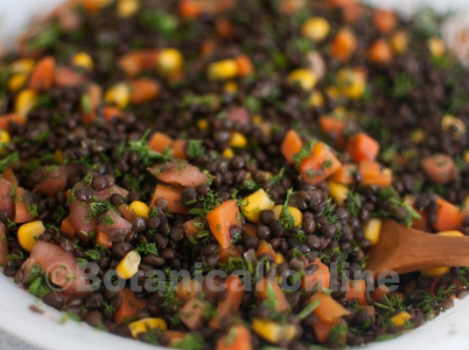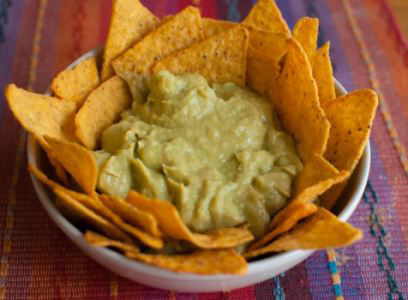Contents
- 1 Recommended for for fibromyalgia
- 1.1 How should the diet for fibromyalgia be?
- 1.2 Alternative therapies to improve fibromyalgia
- 1.3 Food rich in magnesium and calcium to avoid fatigue
- 1.4 Eating few proteins produces fatigue and overweight
- 1.5 Magnesium supplements for fibromyalgia
- 1.6 Calcium and fibromyalgia
- 1.7 Foods rich in anti-inflammatory omega 3
- 1.8 Foods rich in vitamin C and antioxidants
- 1.9 Other foods with nutrients for fibromyalgia
- 1.10 PROHIBITED FOOD FOR FIBROMYALGIA
- 1.11 Proinflammatory bad fats
- 1.12 TABLE OF COMMON PAINS
Recommended for for fibromyalgia
How should the diet for fibromyalgia be?
The recommended diet to help improve fibromyalgia is also healthy for the whole family, so the person should not eat other than the rest.
It consists of a very alkalizing diet, that is, rich in legumes, vegetables and seeds, which provide omega 3 and a lot of vitamin C, magnesium and calcium.
Alternative therapies to improve fibromyalgia
In addition to food, it is necessary to know that there are other complementary therapies that have proven to be very beneficial in improving fibromyalgia. They are summarized in the following points:
Photo of lentil salad highly recommended for fibromyalgia.
Photo of lentils salad highly recommended for fibromyalgia.
- Proper diet (explained in this article)
- Adequate physical exercise: A litte daily exercise can improve fatigue and fatigue. Put yourself in the hands of a professional duly qualified to train.
- Reducing stress has very positive results.
- Sleeping long enough: Improving sleep time and quality can improve fibromyalgia since sleeping is the main form of natural regulation of many hormones and bodily processes. If insomnia exists, it should be treated with the help of the previous points and the use of plants such as lemon balm.
Food rich in magnesium and calcium to avoid fatigue
Magnesium is necessary not to feel tired and it also works on strong bones.
Among plants that contain a lot of magnesium we would mention legumes, vegetables, nuts and seeds (almonds, walnuts, pumpkin seeds, Swiss chard, spinach, etc.).
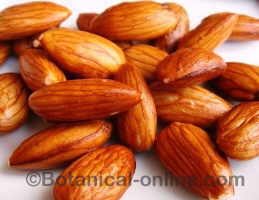
Photo of almonds, rich in minerals and omega fats
Legumes are recommended as the main dish at least 2 times a week (chickpeas, lentils, peas, etc.), because they contain a lot of protein and much more magnesium and microelements than rice or pasta.
Potatoes, sweet potatoes, buckwheat and quinoa are also recommended, which are also richer in magnesium than any cereal.
Sesame seeds (very rich in calcium), almonds (rich in magnesium) flaxseed or chia (very rich in fiber and omega 3) and tahini are recommended to increase the nutritional value of the dish.
Eating few proteins produces fatigue and overweight
Some people with fibromyalgia ingest too little protein, which results in greater weakness and fatigue. Foods rich in protein are very necessary and nutritious (with high contribution of all B vitamins and minerals such as zinc and selenium).
People with fibromyalgia may have difficulty preparing legumes, meat or fish, which can be laborious preparations. Lack of appetite or depression also leads to less intake of these foods.
It is recommended to eat foods rich in proteins easy to prepare as boiled legumes from pot, hummus, tofu, tempeh, eggs (do not raise cholesterol) or other foods with easy-to-cook proteins. Kitchen robots and appliances that facilitate the preparation of these foods will be very helpful if possible.
Another option to eat more protein easily can be sprinkle spirulina powder, brewer’s yeast or other protein supplements in salads, creams and rice dishes. They can also be added to smoothies and yogurts.
One of the problems related to low protein intake and, in general, disorganized meals, is that they usually eat quick, tasty and low-nutritious foods, with too many flours, bad fats, added sugars and salt (bread, pasta , pizza, cookies, soups, …) which leads to overweight and in turn worsens all the above
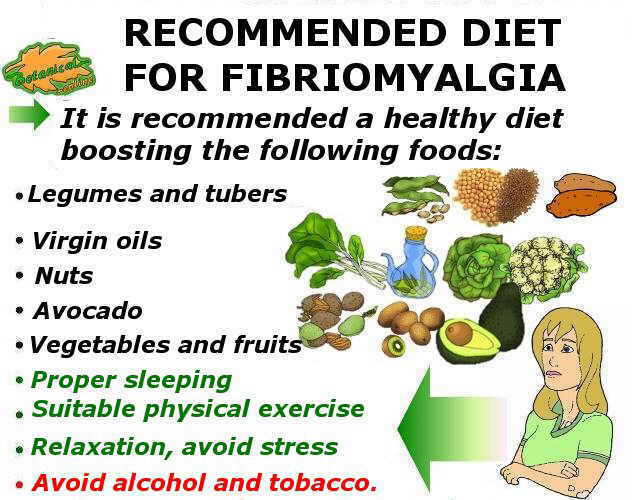
Summary of the main points in the diet to improve fibromyalgia.
Magnesium supplements for fibromyalgia
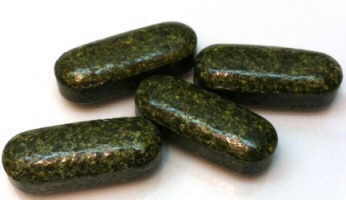
The use of vitamin and mineral supplements may be advisable, but t pills do not substitute a healthy diet
It is highly recommended to take magnesium supplements. The magnesium deficiency that many fibromyalgia sufferers have suggests the ingestion of supplements of this mineral.
It has been proven how patients who take these supplements have fewer episodes of pain. It is advised to take magnesium along with malic acid (which the apples contain). The latter favors the absorption of magnesium and makes fibromyalgia patients less tired.
What is the magnesiun dose for fibromyalgia?
In supplements the usual dose is 300 mg of magnesium per day divided into two doses, preferably between hours.
Calcium and fibromyalgia
Calcium is essential, along with magnesium, for healthy bones and muscles. It is recommended to consume foods with a lot of calcium (dairy, vegetables, nuts, legumes, seaweed, enriched vegetable drinks) to assume the recommended daily levels. * You must separate calcium-rich foods from magnesium supplements for better assimilation (Both minerals compete to be absorbed).
Foods rich in anti-inflammatory omega 3
You must consume healthy fats. Eating few fats to lose weight is a mistake. Good fats do not fatten but on the contrary, they increase thermogenesis, energy expenditure, help to lose weight and avoid the rebound effect of diets.
Good quality oils, nuts, seeds and eggs should not be avoided as they contribute to the supply of interesting nutrients and have beneficial properties. They are foods rich in healthy fats that provide a lot of omega 3, omega 6, vitamin E and flavonoids. They have antioxidant and anti-inflammatory properties.
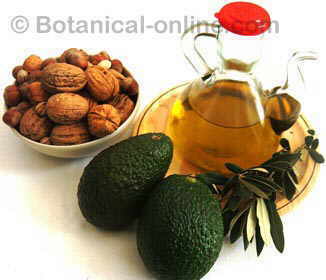
Photo of recommended healthy fats: avocado, nuts, virgin oils
As food rich in omega 3, we have : walnuts, hemp seeds, ground chia and flax seeds, avocado and virgin vegetable oils (olive oil or substitutes).
Evening primrose oil supplements, because of their content of essential fatty acids GLA, will help regulate inflammation.
Foods rich in vitamin C and antioxidants
Because of its antioxidant properties, vitamin C helps to conserve muscle cells against degeneration, so it can improve or prevent the muscular symptoms of fibromyalgia sufferers.
What is the dose of vitamin C for fibromyalgia?
The usual dose is about 300 mg daily a day, which can be obtained through food.

Photo of seasoned tomato It is recommended to add seeds to enrich calcium, magnesium and antioxidants
As foods very rich in vitamin C, we have: peppers, kiwi, salads with radishes, arugula and fruits, strawberries, mango, citrus (tangerine, orange, grapefruit, lemon, …), …
A good trick is to dress the recipes with squeezed lemon juice or lime.
You can add bee pollen to have more beta carotene and energy ..
Other foods with nutrients for fibromyalgia
A diet rich in vegetables, especially foods containing magnesium and silicon, helps keep muscles in good condition and improves fatigue. Plants with a high content of silicon are: horsetail, parsley, nettles – soup of nettles is very appropriate – and nuts.
Equally interesting are foods that contain selenium because they can help decrease the sensation of pain. Brazil nuts and protein-rich foods are the plants with the highest selenium content.
If there is also constipation, fiber supplements (1 teaspoon ground flax or chia seeds, 2-3 times a day) and probiotic foods, as yoghurts with bifidus, will be very indicated.
Sometimes, fibromyalgia presents with obesity. In these cases, you should resort to skimmed milk products and, in general, take a diet low in fat (reduce the consumption of pastries, fats and oils).
PROHIBITED FOOD FOR FIBROMYALGIA
Proinflammatory bad fats
As with any healthy diet, but especially for fibromyalgia, it is very important to avoid bad fats, such as refined oils, margarines and industrial products. This type of fat will produce inflammation and discomfort, aggravating muscle pain and, in women, PMS.
More healthy options are recommended such as tahini, nuts, smoothies, guacamole, etc.
Guacamole, a very good suggested sauce for fibromyalgia
* Related information: Fibromyalgia vitamins, minerals and other supplements
![]() More information on fibromyalgia.
More information on fibromyalgia.
TABLE OF COMMON PAINS
| Muscles and sinews | |
| Muscular atrophy | Bones and joints |
| Fibromyalgia | Joint pain |
| Spasms/ache/cramps | Back or spine ache |
| Muscle pain | Neck pain |
| Tendinitis | Sprains |
| bursitis | Dislocations |
| Others | |
| Stomach ache | Period pains |
| Sore throat | Headache |
| Toothache | Migraine |
| Earache |

